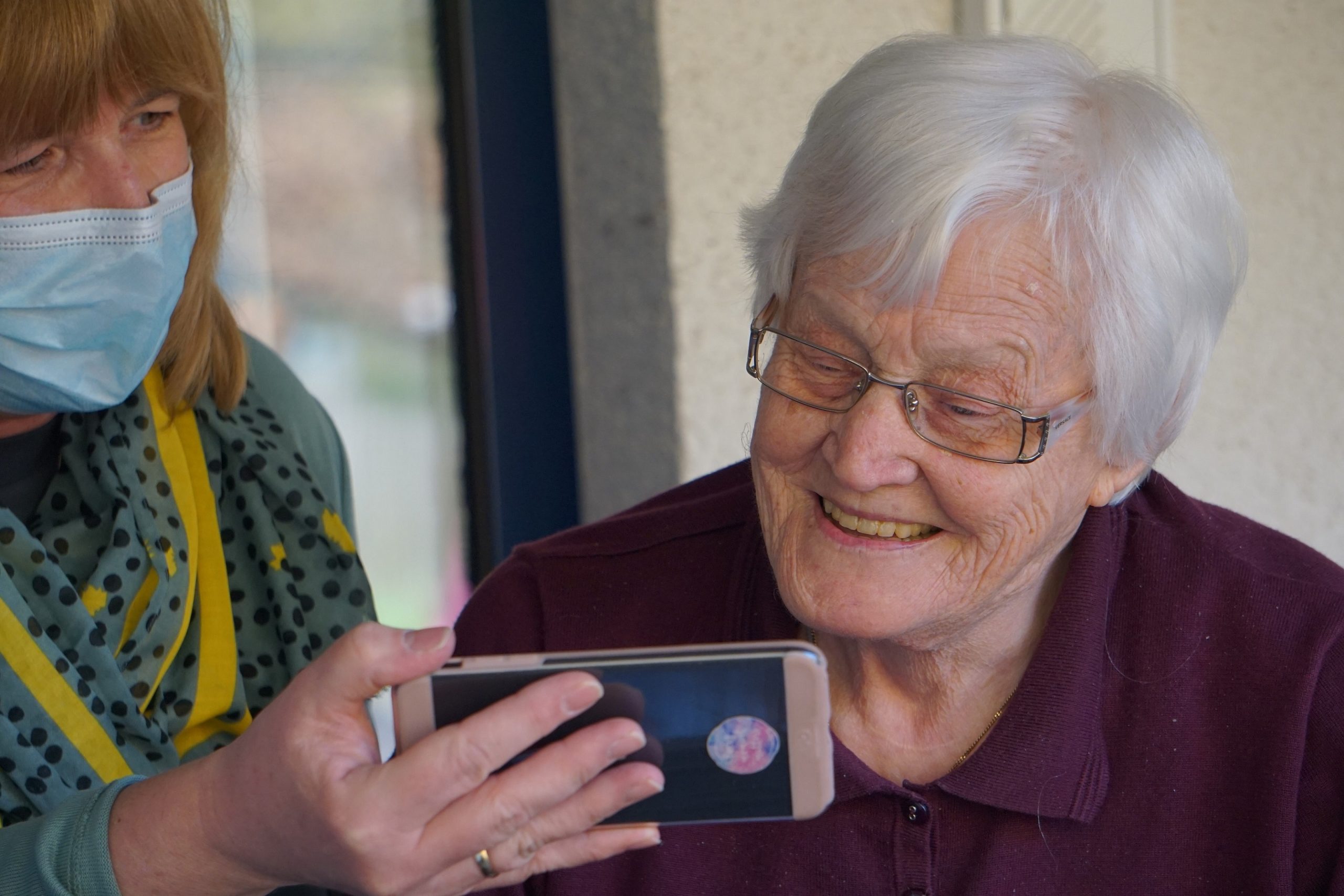- Digital platforms specialized in care-giving services foreseen an increase of the demand to give its services at home due to, amongst other factors, the difficulties in the nursing homes management.
- Digital Future Society and BID Lab are working in an study to know the impact of the COVID-19 crisis in the work digital platforms in Latin America and Spain.

4 August, 2020
Barcelona, August 4th, 2020. The management difficulties experienced in the nursing homes due to the sanitary emergency had provoked a huge increase of the demand in the digital platforms specialized in periodic care-giving at home, known as recurrent services, that had tripled its demand. This is one of the main conclusion of the survey that Digital Future Society has done to analyse the impact of Covid-19 to six digital platforms in the care-giving work sector in Spain, three months after the beginning of the spread of the coronavirus in the country.
On the other hand, the survey reveals that the demand of non-periodic services, known as non-recurrent, provided by the work digital platforms of care-giving services has been reduced, because of they are usually less urgent and indispensable.
The analysis also suggests than the exceptionality of the situation caused by the coronavirus has allowed the care-giving platform to develop new services and to transform the relationship with its workers.
The survey to the Spanish platforms is the first phase in the study that Digital Future Society is working on in collaboration with BID Lab, the Interamerican Development Bank group’s innovation lab. The main target of this collaboration is to get to know the impact of the COVID-19 crisis in the work digital platforms in three emerging sectors (care-giving, delivery and virtual services) in Latin America an Spain, and point out the practices and actions implemented by these platforms during this crisis. In the coming months will be issued the complete results of this collaborative study.
The survey was conducted on June 2020 to six Spanish platforms: Qida, Familiados, Aiudo, Depencare, Joyners and Cuideo. These platforms are focused on offering car-giving services to senior citizens, dependent people, diseased people and children.
Demand impact due the Covid-19
The type of services offered in the digital platforms of this sector is its main distinctive feature. The care-giving to a dependent person from Monday to Friday, for example, is considered a recurrent service, as it is done during a more or less lengthy period. If the service required is go take a walk with a person with mobility limitation is considered a non-recurrent service, because is a one-time, non-periodical service.
The pandemic impact in the care-giving digital platforms has been irregular, depending on the type of services offered. The platforms that offer recurrent services had duplicate and triplicate its usual demand, as this type of services are linked to an urgent necessity to attend. On the other hand, the platforms that offer non-recurrent services have registered a lower demand, down to -100% in some cases. The platforms consider that this is due to the exceptional situation created by the COVID-19, that has interrupted or adjourned less urgent services, or they are done directly by members of their family.
The consulted platforms also point at the scare of exposing the people to COVID-19 as one of the main causes in the impact on the demand of the non-recurrent services, without a predetermined periodicity. On the increasing demand of recurrent and periodical care-giving services, the overcrowded hospitals during this sanitary crisis and the difficulties on the managing of nursing homes had play a major role.
Business adaptation
The exceptional situation caused by the pandemic also has contributed, based on the answers to the conducted survey- to the adaptation and transformation of the sector. Half of the consulted platforms have developed new services and channels for a wider range of additional services such as podiatry or physiotherapy, specialized services for childcare or services for nursing homes like accompanying residents or replacement of their staff.
In fact, 67% of the platforms have done collaborations with public and private institutions, mostly with support services for nursing homes or staff replacement. Moreover, 34% of the consulted platforms have assisted nursing homes and sociosanitary centres with additional staff.
The relationship between the platform and its workers have been also reinforced due to the sanitary crisis. All the interviewed platforms have modified their protocols and training, for professional caretakers and for the families that contact them for their services, adapting digital tools to COVID-19, writing guides and other information material and giving courses and webinars.
Half of the consulted platforms gave personal protective equipment to their workers and 34% increased their salary for services COVID-19 related.
Overall, there has been an increase of the activity in the care-giving digital platforms and its professionalization since the beginning of the pandemic, that is helping formalize a sector usually known as a precarious work.
The future of the sector
All digital platforms consulted assure that the post-COVID-19 era will be a major change for the future of the sector, with positive impacts, but also point at the possible negative outcomes. On one hand, the platforms coincide to affirm that, due to the pandemic, the demand of home care will continue to grow. Also think that the nursing homes will take a long time to recover and, therefore, in that context, the users will prefer to have their relative at home. This can help to decompress the Primary Healthcare Centre at times of high stress.
On the other hand, the platforms express some concern about the foreseen economic crisis. They think that the decrease of the purchasing power will impact their services, as this is a sector that grows when the reduction of unemployment. They are aware that the necessity of these care-giving services for the families will not disappear, but they consider that there are signs that indicate a trend to a model of sharing the care-giver amongst different users to reduce the cost of the services.
Features of the sector
The care-giving sector carries on a huge economic activity that accounts for 4,65% of Spanish’s GDP -equivalent to €42.000M. One of the main features of the sector is that It is usually an informal work, and this explains that 4,30% of the GDP created is informal and only 0,35% corresponds to a formal work.
On the employment market, the care-giving sector involve 9,2% of he jobs created in Spain, 8,50% informal and 0,70% formal work. Also is a female-dominated sector and represents 20% of women jobs in total.
This analysis show that the care-giving is a growing sector: all the digital platforms surveyed had been created on the last five years. Nowadays, in Spain there are 10 platforms: specialized on senior citizens and dependent people care (9) or children (1), but there are also some platforms that offer a wider range of services (cleaning, care-giving, private lessons…). Also, in Spain there are several international platforms that offer similar services.
Stay up to date about everything
Subscribe to stay up to date with the latest content from Mobile World Capital Barcelona.
